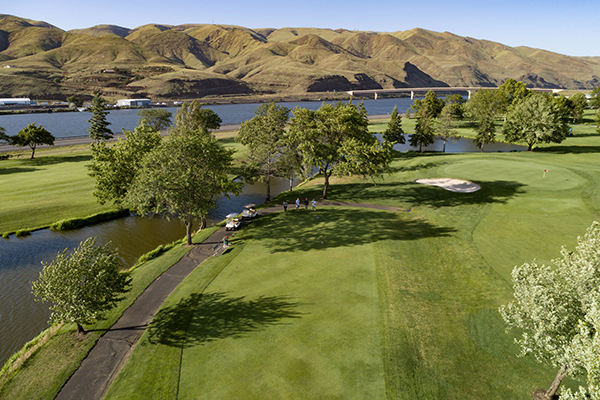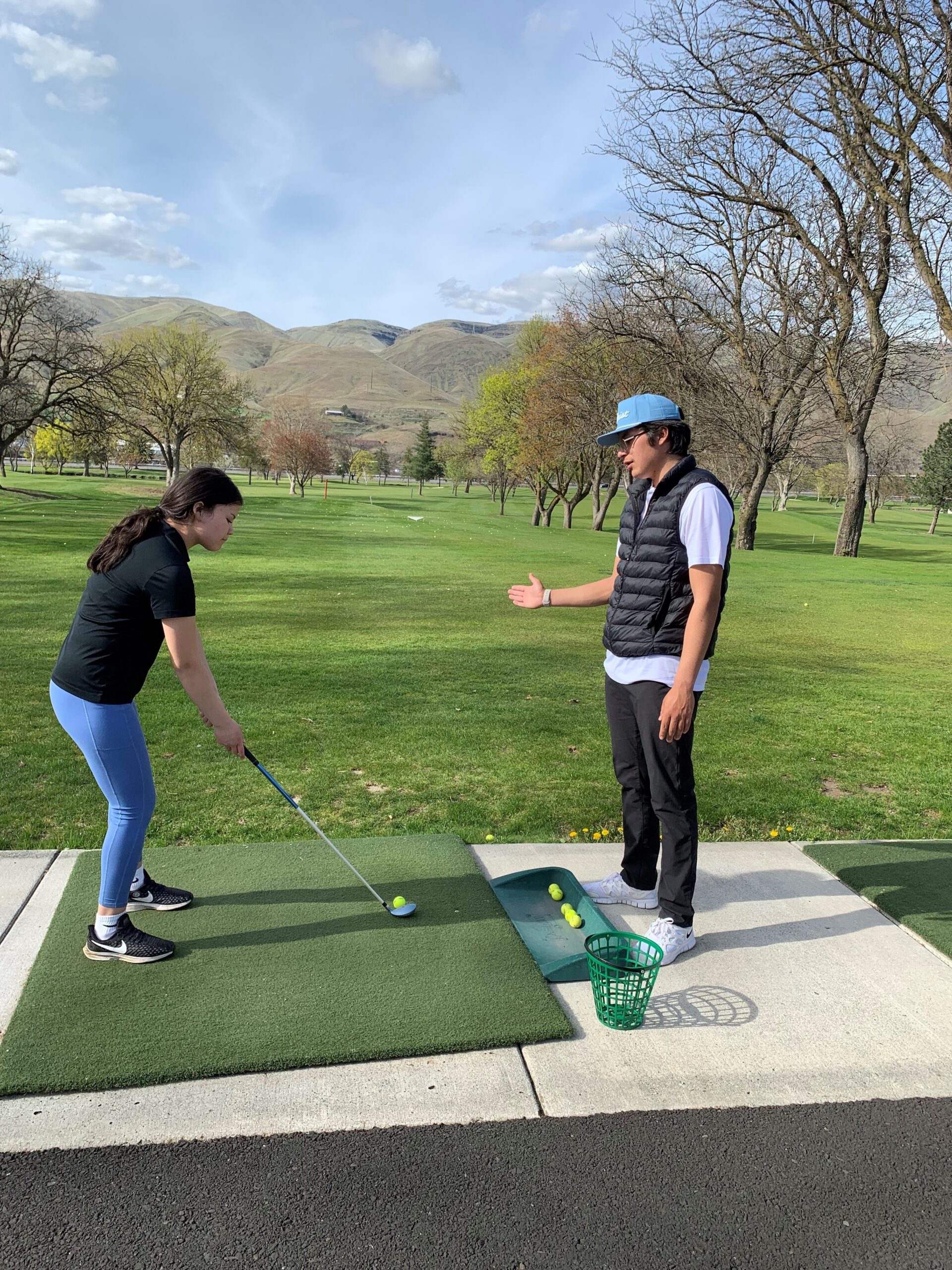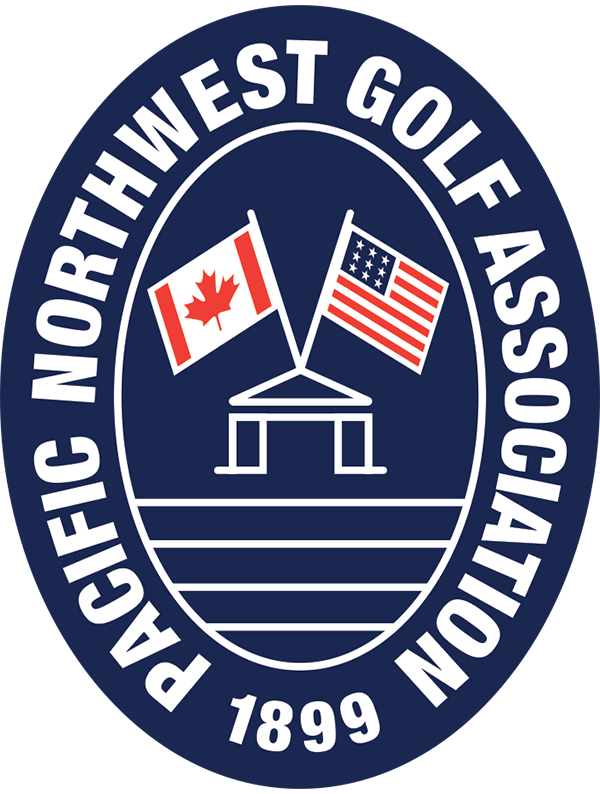Golf or Land? Nez Perce Tribe chose both when they purchased what is now Red Wolf Golf Club

By Bob Bostwick
There is more than one story about Red Wolf Golf Club in Clarkston, Wash. And there is more than one journey for the Nez Perce Tribe since purchasing the former Clarkston Golf and Country Club in 2018 and taking it under their own management in February 2019.
For golfers, tribal or non-tribal, a classic parkland style course, once financially endangered, remains not only in play, but under steady improvement.
About $1 million has been invested by the tribe already, including new maintenance equipment, inside and outside staff, cart paths, some clubhouse remodeling, and fluffy new sand in every bunker. Memberships are maintained and honored, about half the total now including Nez Perce tribal members. Further, a new sprinkler system is in the works, a contract project slowed by somewhat ubiquitous post-pandemic scheduling woes.
That story and these early results are happy ones for locals in the Lewis and Clark Valley. That much is about golf.
But there’s more.
The story, you see, is also about land – and better still, it is about Homeland.
Red Wolf, the 19th century icon who fought with Chief Joseph in the 1877 Nez Perce War, and survived it, was Headman of a tribal settlement along these very shores of the Snake River, just downstream from the Snake and Clearwater confluence.
These 150 or so acres are barely a fly speck among the 17 million acres of Nez Perce homeland, spanning northeast Oregon, southeast Washington, north Idaho and southwest Montana. It’s barely more than that, relative to the 770,000-acre Idaho reservation headquartered in Lapwai.
Opportunity is not just knocking; it’s sending smoke signals.
The purchase means, and for the first time since the treaty days of the late 19th century, that the tribe has land ownership across the state line into Washington. Existing Nez Perce resort and gaming development already thrives at the Clearwater Casino in Lewiston and the It’se Ye-Ye Casino in Kamiah.
But in Washington, the question arises as to whether the tribe can develop with another gaming compact in another state and, to be sure, a compact that allows for vastly expanded gaming offerings and operations.
Tribal leadership pushed for the ownership, perhaps for further development. Former Chairman and current Tribal Council Vice Chairman Shannon Wheeler is among the visionaries.
“Tribal people understand that we live here and will work to have a good quality of life,” said Wheeler, who plays to a 3-handicap. “Since Lewis and Clark, when we provided them with horses and canoes, we do what we’ve done for thousands of people. We have the opportunity for growth, and we will benefit the entire region, not just the tribe.”
Negotiations for ownership began in 2016. The course, which opened in 1974, was established under Internal Revenue Service code 501c3, and not to be sold for profit. In recent years, membership was aging and dwindling, cash flow and debt having become critically problematic. As is the case with scores of golf developments across America, the local tribe stepped in with goals, and with cash.
“On the business side, we are operating two casinos, two convenience stores, Zima Hot Springs in New Meadows (Idaho), and now the golf course,” said the Tribe’s Enterprise Executive Officer Nikoli Greene. “On the economic side, we’re adding an amenity and we will broaden our base. We have land in Washington. It’s definitely a challenge, but we’re trending in the right direction.”

Speaking of direction, 23-year-old tribal member Keith Kipp Jr. has a new one of his own. His status is Associate PGA, finishing up his first year in the program, two more to go for his card. He was one among many in a long tradition of outstanding athletes at Lapwai High, but this purchase and this game changed the life and the sport of one who had no more athletics to play after graduation.
“I didn’t play golf and I didn’t have any interest in it before we took over this course,” said Kipp. “But it gave me a chance to play and I fell in love with the game. It’s a career now, and I have it because the tribe bought this.”
Red Wolf hosted the second of two pro-am rounds as the Inland Northwest PGA kicked off the season in early April. Kipp, the rookie, finished seventh.
Wheeler, meanwhile, sees three purposes to the tribe’s venture:
- Reestablish the tribe within its original homeland under the auspices of the Treaty of 1855.
- With many tribal golfers, establish a course to call home, introducing youth to golf where basketball is king, and an opportunity for youth that wasn’t there in the past, detouring kids from the dangers of lives with limited future.
- The course is ancillary to current tools for advancing enterprises and revenue sources, and for the Nez Perce, a Plateau Tribe, to exercise sovereignty over historic homelands.
Red Wolf stretches 6,683 yards from the blue tees, par 72, course rating 71.8. The fairways are tree-lined, bunkers are abundant, doglegs are frequent, water is both still and flowing, and greens are firm and fast. The green fee is $50, and annual membership is $2,300. Social and student memberships are also available. The course is open to the public, the private side maintained along with it.
Among the qualities of golf in the Lewis and Clark Valley is climate change – the good kind, not serious threats of global warming nor the subject of political debate. Mother Nature does the job properly here when a cold winter day, likely to include snow cover, shrouds the Palouse above and also the closed golf courses in most of Eastern Washington and North Idaho.
Players can flock here in winter. The climate changes with the elevation, dropping from 2,300 feet at the north rim to 750 feet at the valley floor. The temperature may rise 10 to 20 degrees. It can turn January into October, and February into April.
Golf-hungry Spokanites migrate when possible in flocks, playing Red Wolf, the Lewiston Golf and Country Club, Bryden Canyon in Lewiston, and Quail Ridge in Clarkston.
There is likely no greater show of “traditional tribal hospitality” than that provided along these shores to Lewis and Clark, and their Corps of Discovery, the tattered, half-starved, exhausted band that struggled over Lolo pass and arrived here in September 1805.
Over a month’s time, the Nez Perce fattened ‘em up and provided canoes for the Americans’ final and floating tour down the Snake River and on to the mouth of the Columbia, then harbored and rehabilitated their worn-down horses until Lewis and Clark’s corps returned. They stayed again for almost two months, in May and June of 1806, before their long journey back to St. Louis.
To be sure, similar hospitality and honesty were key elements in the negotiations with the membership as the deal to purchase the golf course was in the making.
“We had the right people to purchase the course,” said Men’s Association President Len Kelly, himself a local high school teacher, and a golf club member here for 35 years. “It’s great so far. They’ve upgraded facilities and they’re upgrading even more, including equipment and things inside. We’ve all kind of blended in together, and what they promised, they’re seeing through.”
Tribal member and Golf Operations Supervisor Zeke Domebo brings hospitality expertise here, primed after years at the Coeur d’Alene Tribe’s Circling Raven Golf Club 90 miles north of Red Wolf.
His return to the valley has purpose.
“Our tribal youth will play here and some will work here,” said Domebo. “This course can provide them with a lifetime sport, and it’s something that will offer them a path to a better future. We already have high schoolers taking up the game, including both boys’ and girls’ varsity teams at Lapwai. We can offer the same to more kids from the schools here in Clarkston and Lewiston.”
The Nez Perce Tribe employs 1,280, making it the second largest employer in the region, and likely moving up fast. Its economic impact on the region tops $236 million annually. The wealth is, and will continue, growing.
This acquisition creates, as Wheeler puts it, a place of relationships. The welcome mat is laid out for varsity players on the university and high school levels. It’s laid for locals of all ages, Indian and non-Indian.
“We see an opportunity for the region,” Wheeler said. “We see the importance of giving back to the community. We distribute our wealth. We build wealth so we can share it.”
And another piece of Homeland. They’ll share that as well.
Bob Bostwick is a former sportswriter and member of the Golf Writers Association of America, a TV news anchor, political reporter and editor, and a publicist. He has won numerous local, regional and national awards as a journalist and filmmaker.





